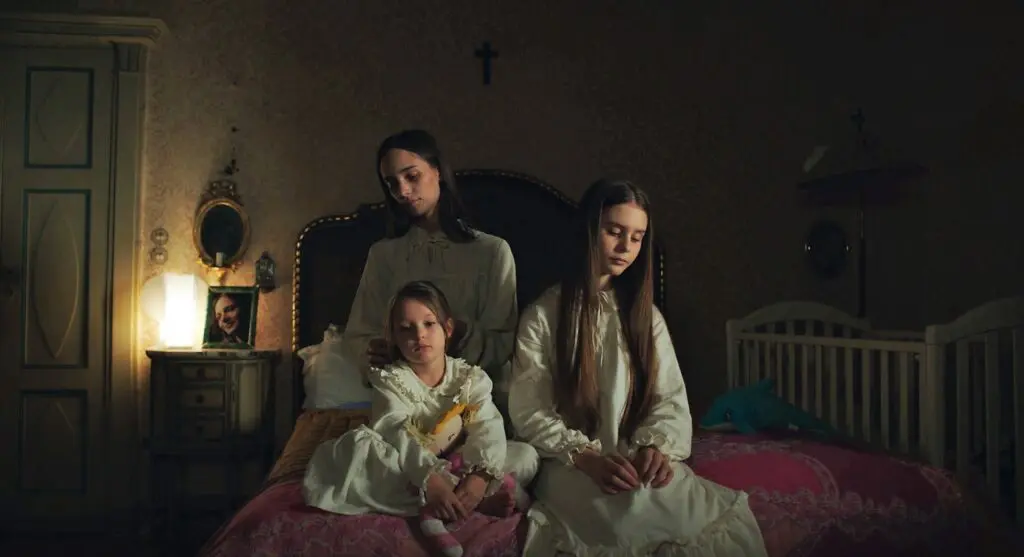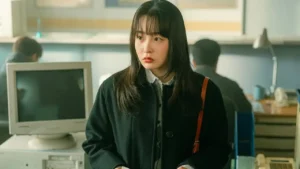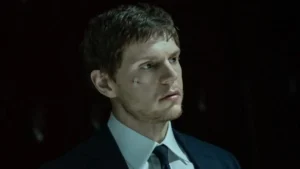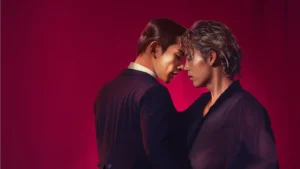Summary
Feminist cautionary tale in the guise of an apocalyptic drama. Well made, but flawed in its writing.
This review of Buio, aka Darkness, is spoiler-free.
Stella, Luce, and Aria live in a house with no natural light, and under the protective care of their father. He goes out looking for food, while Stella (the oldest) schools the others and maintains the home. The girls go nowhere: their father tells them that since the apocalypse, the sun is too strong for women, and the world is too dangerous. This is the darkness they live with, and they are desperate for a change.
So that’s the opening scenario of Buio, and it’s a very well presented one (apart from a bit of clunky exposition near the start). We can see they live simple lives, with basic clothes and joy gleaned from old exercise videos and dressing up. We can see too that their father comes home wearing a gas mask and hear him tell of killing three men to bring the family food. Their relationship is odd, strained for sure: he does all the tough work and they stay safe indoors (though apparently, there is no other way); and more difficult for them, he wants them to give up thinking about their brighter past.
Stella (Denise Tantucci) looks after adolescent Luce (Gaia Bocci) and the little Aria (Olimpia Tosatto), trying to make sure they have an easier time growing up than she did, and helping them to stay strong and positive in the circumstances. These roles aren’t demanding ones, but the young cast plays them well enough. Their father (Valerio Binasco) is a little on the volatile side, with unpredictable phases; strict, loving, religious, over-familiar, and finally absent. Their mother (Elettra Mallaby) is only seen in flashbacks, gone from the family since before the story starts. Those flashbacks (for the most part) are dreamlike and beautiful, and here lies a simple contrast: Father dark, Mother light.
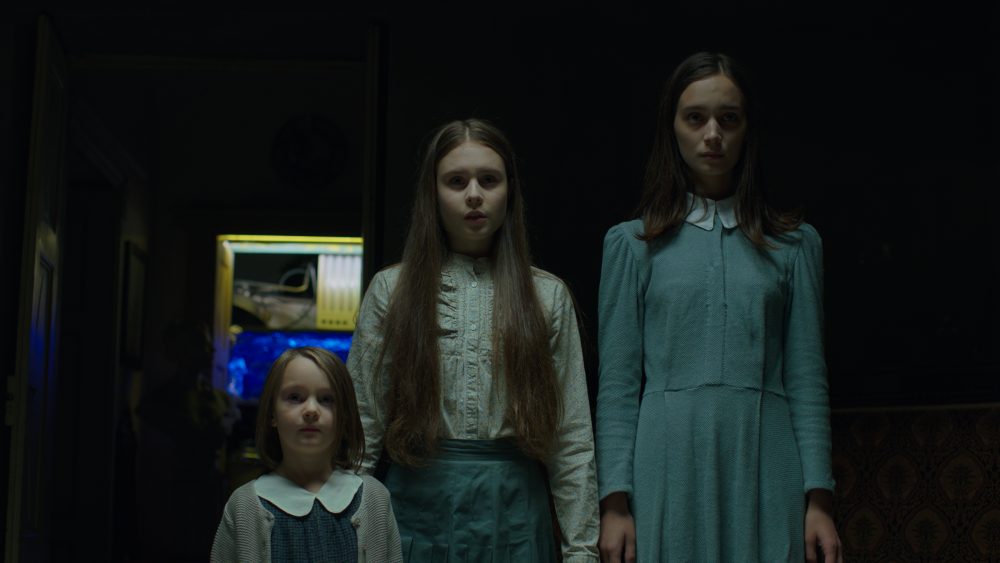
Buio’s premise in general is fairly familiar, and there were a couple of (equally familiar) directions the story could go. Even though I did anticipate where it was heading (and I’ll do my best not to give it away), it still felt shocking when the plot took that turn. It was largely after that point that some of the film’s flaws became apparent though. Directed by Emanuela Rossi, and written by Rossi with Claudio Corbucci, the last half feels like it was written in a hurry, without anyone checking for sense or continuity errors. This is a dreadful shame considering the care applied to the first half, which showed real promise, especially in the direction.
It also becomes increasingly apparent that Buio was written from a feminist perspective. This in itself isn’t a problem, of course (I hope such films continue as long as the world needs them). Such stories need to be written and presented intelligently, so as to avoid “man-hater” criticisms and so on. Buio is at heart a simple cautionary tale that demands girls to resist oppressive situations; not an unreasonable message, sure, but this film is way too blunt a tool to demonstrate that point.
Buio (also known as Darkness) has its German premiere at Final Girls Berlin Film Festival.

